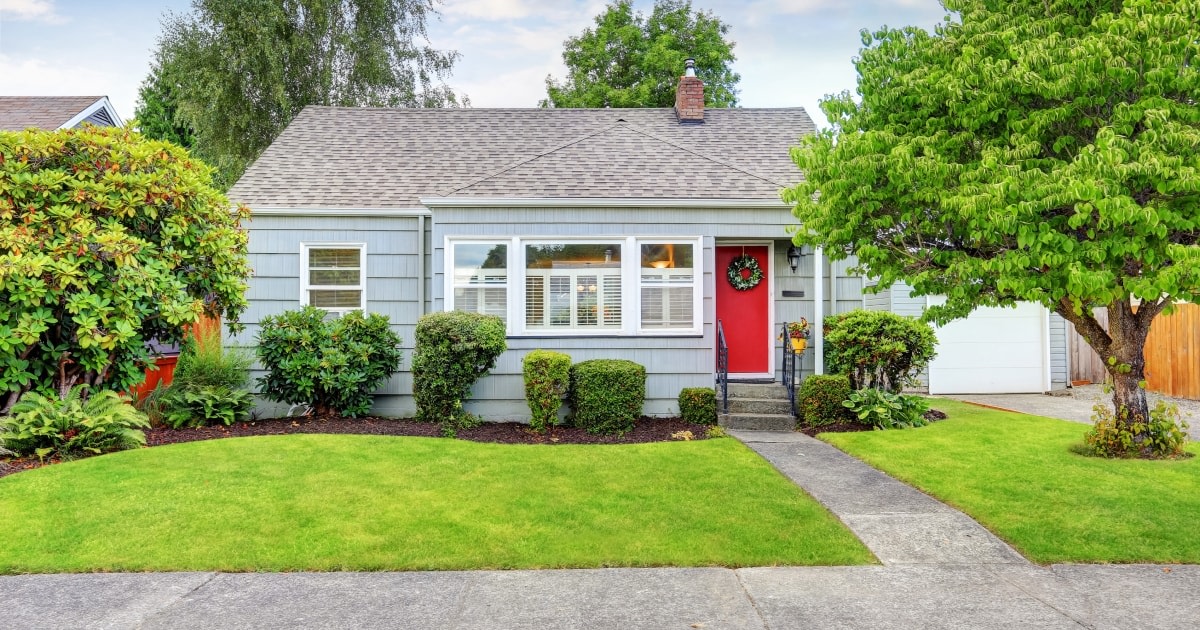4 Unexpected Costs of Being an Accidental Landlord
WHAT YOU'LL LEARN
What is an accidental landlord?
What are their responsibilities?
What do the expenses look like?
WHAT YOU'LL LEARN
What is an accidental landlord?
What are their responsibilities?
What do the expenses look like?

Many of us have had a landlord at some point in our lives, but have you ever envisioned yourself becoming one (our current landlord friends excluded)? “Accidental landlords” are more common than you might think. The role has many responsibilities, and pursuing the new side hustle leads to several unexpected costs. But you don’t become an accidental landlord overnight.
What Is an Accidental Landlord?
Accidental landlords become owners of a property typically, as the name (kind of) suggests, quickly. For example, say you inherited a property from a loved one who just checked into a nursing home. If you decide to rent out the property, as opposed to living in or selling it, you’re now an accidental landlord...by choice...weird. But inheritance isn’t the only way to become an accidental landlord. If a property you own becomes too expensive to sell, you might decide to bring in a renter to recoup some of your finances. Or maybe a life-changing event has made renting your property a viable financial decision. There are some pros to becoming a landlord. For example, you can earn equity from tenants paying the mortgage. Some of the costs might even be tax-deductible, etc. But becoming a landlord also brings on a whole slew of responsibilities.
An Accidental Landlord’s Responsibilities
In most cases, accidental landlords have the same responsibilities as conventional landlords. You’ll interview prospective tenants, perform background checks, manage and file paperwork, schedule and oversee home repairs, collect rent when it’s due, and, in the worst cases, send eviction notices. That’s a lot to take on for someone without any background in land lording, but the new duties don’t stop there. Renting out your property comes with some unexpected costs.
Maintenance Expenses
You’ll need to keep a watchful eye over your property to ensure it’s always running in tip-top shape. That means crafting a budget that accounts for any unforeseen maintenance issues. The number you set aside for upkeep should factor into your tenant’s rent. It’s always a good idea to hire a professional to handle major problems so the issue can be resolved quickly and efficiently. Every state has different tenant laws, but in most cases, failing to fix a leaky roof or broken heater in a reasonable amount of time could give the renter the legal right to withhold their rent until repairs are made.
Record and keep receipts for all repairs. They may be tax-deductible.
Travel Expenses
If your property is in another city or out of your state, you’ll wind up paying for gas, lodging, food, and any other purchase you make every time you want to pay a visit. Those miles and nights at the hotel add up fast, so once again, you’ll want to plan for those expenses in your budget.
Insurance Expenses
One of your first priorities after becoming an accidental landlord should be getting landlord insurance. It’s not required by law in every state, but if you plan on leasing for more than six months, you might find its advantages far surpass the cost. Landlord insurance will protect you in the event you’re found liable for an accident on your property. It will also protect you from physical damage to your property caused by things like fire, fallen trees, or lightning. Landlord insurance is not the same as homeowners insurance, as you don’t need to live in the space you're insuring.
If the property is already protected by homeowners insurance, contact your insurance provider and inform them that the property is now a rental.
Personnel Expenses
Let’s revisit one of the potential issues mentioned above. If you live in, say, Virginia and your property is in New York, you might want to consider hiring a qualified property manager to oversee things when you can’t be there in person – if you can afford the extra expense, of course. After all, you probably had a busy life before becoming an accidental landlord. Property managers can take care of leasing, interviewing candidates, and managing day-to-day operations so you still have the time to drive your kids to practice on the weekends.
We’ve Got Your Back
Being an accidental landlord can take a lot out of you. Screening tenants, managing paperwork, overseeing repairs, and creating your budget takes time and energy. Not to mention dealing with your new property’s mortgage. But that’s where we come in! You can always rely on an Atlantic Bay Mortgage Banker for your mortgage needs. We’re here to help!
This information is not intended to replace the advice of a tax professional.